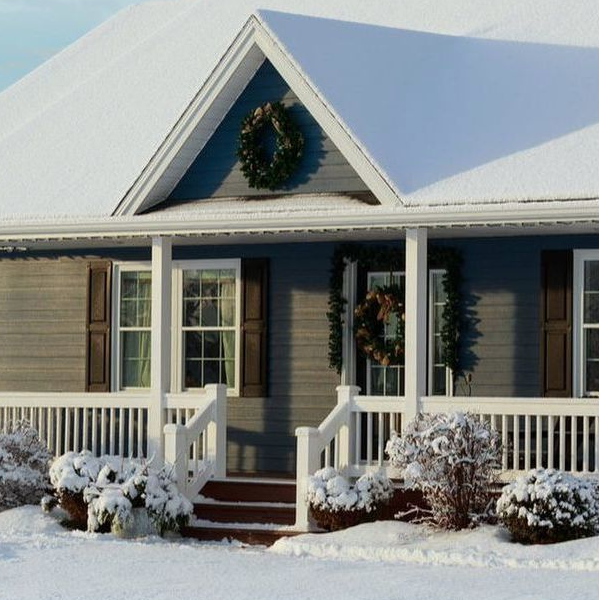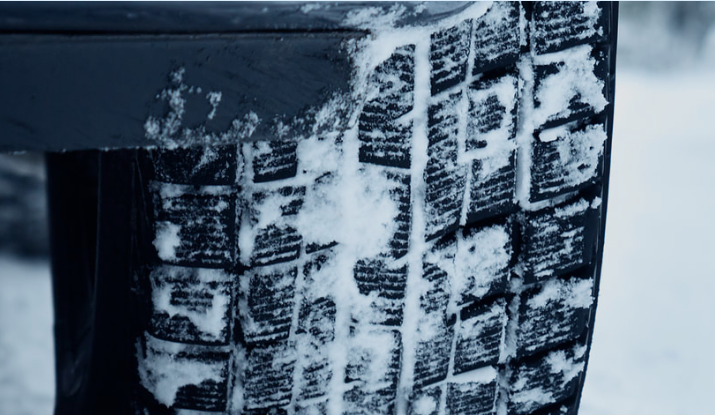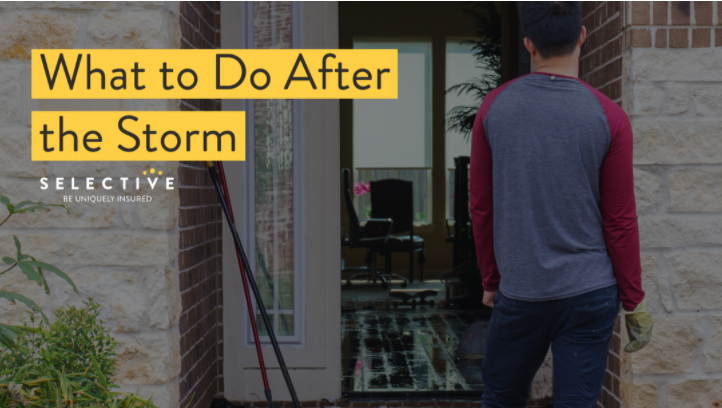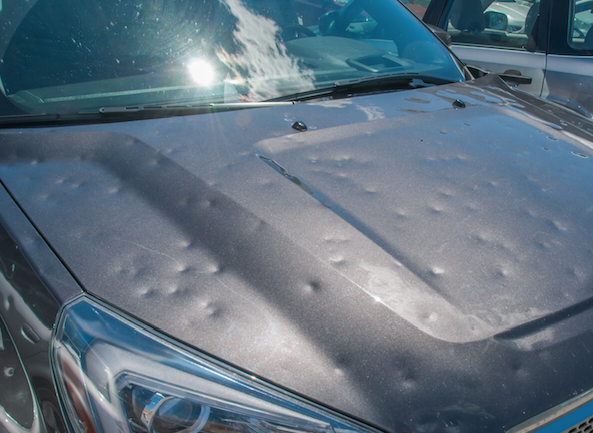Safety Tips for Heating Your Home

In the interest of keeping you toasty and safe this winter, here are safety tips for each of the five common ways of heating a home.
Electric space heaters
Electric space heaters cause the majority of fatal house fires. December-February are the leading months for home heating fires.
Do not leave an electric space heater unattended. If you are using an extension cord make sure it is rated for the wattage the heater draws. This information is normally printed on the cord itself and the information plate on the heater.
Kerosene heaters
The biggest dangers from kerosene heaters lie in two areas. The first is that many accidental fires are started from fuel being spilled while the heater is still hot or burning. To reduce the chance of this happening, be sure the heater is off and has had time to cool before fueling. Clean up any spills immediately.
The second concern is that kerosene heaters consume oxygen and can produce carbon monoxide and other deadly fumes. They should only be used in well-ventilated areas. Drowsiness and lethargy are early signs of asphyxiation. If you feel woozy while using a kerosene heater, get fresh air immediately.
Wood stoves
A wood fire can warm a home in more ways than one, but is not without dangers. Whether you are using a woodstove or fireplace for heat, be sure you know what precautions to take. Don’t leave a fire unattended, do not put combustible materials close to the fire, and discard all ashes outside in a metal container with a lid to avoid the risk of causing fires.
A properly designed and installed fireplace or woodstove should not let smoke into your home. If you smell smoke, it means your unit is not drafting properly and could present a danger of asphyxiation. You should call a certified technician to check it immediately. READ MORE
What Can I Invest in to Make Money?

Elizabeth Macauley, Janet Berry-Johnson, Gene Marks
After years of earning and saving money, you may be left wondering how you can increase your income further. Investing probably comes to your mind fairly quickly. After all, we’ve all heard stories of people making a lot of money off of the stock market. So how can you invest to make money?
You can consider different strategies, including the stock market, peer-to-peer lending, real estate investment, retirement plans, and even growing your own skills. With the right strategy in place, any of these options could springboard your income to a new level.
What Can I Invest in to Make Money Fast?
Sometimes it can take years for investments to pay off, making you feel reluctant to invest at all. However, don’t shy away just yet. There are ways to make money quickly by investing. Some of these include:
The stock market. You can purchase stock through a broker, a financial planner, or an online platform. One popular online stock buying and selling platform you can use is E*TRADE Financial Corporation. Sites like E*TRADE can assist you in similar ways as a broker.
Stock can make you money quickly because each share you buy represents a piece of a company. Companies then pay you dividends. These dividends are a part of the total profits for the company. In addition to this, stock can make you money when the per-share price increases. However, before you run out and quickly invest in stocks, you will want to learn the basics and set investment goals. You’ll need to decide how much money you are willing to spend. Typically, you’ll need to set aside at least $1,000 for your first investment.
Trade commodities. Trade commodities come in two forms: The first is hard commodities. These require mining or drilling to find metals or energy sources like natural gas. The second form is soft commodities. These can be farmed or grown. Examples include corn, wheat, or cattle. Both types of commodities in the market place are shaped by supply and demand. The more a supply depletes, the higher the price of the commodity. Read More
Heading South For Winter? Prepare Your Home!

Many homeowners may soon be heading to the southern parts of the country to escape the brutal cold and heavy precipitation of winter. However, while you might successfully be getting out of the path of winter storms, your home could be in harm’s way during winter weather. To ensure that you are protecting your property you will need to make some preparations to alleviate the stress you might have while being away.
If you are vacating your home, consider the following before you leave:
Gone for a week
USA Today, a national publication, suggests making a comprehensive list of things to do before leaving the house for a winter vacation. Key items on that list: Unplug electrical devices (other than the refrigerator) to save power and reduce fire risk, and consider using a timer for lights. According to the article, homeowners will also want to keep the heat set around 50 degrees, as this will not take up too much energy but will also keep the pipes warm enough to avoid damage.
The source urges individuals to remove any and all items from the refrigerator that could potentially spoil. When only gone for a week or so, keep your eye on the weather and see what the temperatures are expected to be while you are away. The article also advises shutting off the water supply to the house while away.
Finally, USA Today recommends taking a look at maintenance contracts and schedules and notifying all of your service providers that you will be away.
Gone for the season
If you are going to vacate your home for the entire winter, there will be more preparations needed. USA Today recommends turning off the water supply to your home. Open all faucets and drain them. Angie’s List suggests leaving faucets open to prevent pressure buildup. Read More
How Your Relationship Status Can Affect Your Insurance

Michele Lerner
Your particular insurance needs depend, in part, on who you live with and your relationship to them. As such, most changes to your relationship status will warrant an insurance policy update.
If you don’t update that information, your insurance company may have incomplete information about who’s sharing your home or your car, and you may have too little or too much coverage.
Single with Roommates
Whether you rent or own, whether you live alone or with roommates, you should have an insurance policy to cover your home and possessions. Your guests, your roommates, and their guests can all cause damage to your home (and so can you, for that matter).
If you’re renting, the person on the lease typically purchases the renters insurance. If both your names are on the lease, you’ll need separate renters insurance policies; most insurance companies will not write one policy for unrelated friends.
If one name isn’t on the lease and that person doesn’t have a policy, the possessions they keep in the home are likely still covered by the policyholder’s insurer.
However, any possessions that are lost, destroyed or damaged outside of the home may not be covered automatically. If this person’s phone is stolen while they’re out, for instance, it wouldn’t be covered.
To have the off-premises possessions covered, the policy-holder would have to purchase an insurance endorsement to provide their roommate with off-premises possessions and liability protection.
If one person has bought a place and the other roommates are paying rent to them–think Blanche and the other Golden Girls–the owner should get a homeowners insurance or condo insurance policy and the renters should each get a renters insurance policy. Read More
How to Decide Which Body Shop to Use After a Car Accident

Nancy Mann Jackson
Getting into a car accident is a scary experience — and the moments after the accident are stressful. If your vehicle is damaged, you’ll need to file an insurance claim, but then what?
You may assume you’re in for further headaches as you choose a repair shop and work to get insurance reimbursement for the damages.
However, getting post-accident repairs made doesn’t have to be difficult. Basically, you have two options: You can select an auto body shop from your insurance company’s list of approved shops, such as The Hartford’s Customer Repair Service Program (CRSP), or you can find your own body shop to handle the repairs.
While your insurance company is committed to fixing your vehicle after an accident, your particular situation will dictate which is the better option for you. Keep in mind that the same technological advances that make your car better to drive also contribute to making repairs more complicated – and potentially, more expensive. Here are some things to consider when making this decision.
Why use an insurance company-recommended body shop?
Opting to use an auto repair shop that’s already approved by your insurance company can save you time and possibly money. That’s because you don’t have to search for the shop, get an estimate, or wait for an inspection; your insurance company has already agreed to work with the shop. Because you save some time on the front end, working with a recommended shop also may help you get your car back sooner.
In addition to saving time, working with an approved shop can save you the hassle of filling out paperwork required by your insurance company. And, in most cases, insurance companies require their approved shops to guarantee their workmanship if there is a problem with the work down the road, for as long as you own the vehicle. On the other hand, if you choose your own shop, you’ll have to deal with any future issues on your own . Read full Article
Glascock & Meenan Insurance Agency – 50 Years Young

Glascock & Meenan, celebrating over 50 years in business, is located in Prince Frederick at 45 W. Dares Beach Road in the red brick building directly across the street from Safeway. Bedford Glascock started the agency in 1967 and Keith Meenan joined the agency in 1978 becoming president in 1987. We know most of our clients on a first-name basis, and this personal relationship between agent and customer stretches over 5,000 active policyholders. Glascock & Meenan is contracted with over 12 insurance companies, so we can find the best fit for our client. Focus is on a client’s needs, and we will move a client to a different carrier when warranted. We are truly an independent insurance agency and proud to be a member of the Trusted Choice Independent Insurance Agents Association of America.
We have no voicemail. When you call Glascock & Meenan, you will talk to someone immediately; you talk to a real person. We offer personal lines insurance such as home, automobile, boat and umbrella. Our commercial department will work up a package that can include: property, liability, automobile, workers compensation, contractors’ equipment, etc. We will write your life and health insurance as well. Whatever type of insurance you’re looking for, you will get fast personal attention.
This service is from a staff of nine and most of our agents have over 15 years experience with Glascock & Meenan. We have a culture of service after the sale. For example, a client whose auto insurance policy was purchased through Glascock & Meenan was stopped by police. The client was unable to show proof of auto insurance to the officer who had pulled him over. Based on a new Maryland law, the client would have been fined $50. However, a call to his Glascock & Meenan agent led to an email and text which was sent to the client’s phone. The emailed and texted document showed that the driver did indeed have auto insurance and the fine was averted. We use modern technology while providing “old-fashioned” service.
On a periodic basis, Glascock & Meenan agents evaluate a client’s insurance portfolio, and recommend changes as needed. We have invested in technology that allows us to easily communicate with our customers and be proactive. We notify clients when insurance companies make significant coverage changes, and we will suggest options. For example, insurance companies frequently change Hurricane deductibles, a move that sometimes goes unnoticed by clients. We constantly review for any changes and notify our customers. We also encourage our clients to contact us if there are any changes in their lives. For example, if they have children heading off to college or a change in marital status, etc., it’s good to discuss the many insurance ramifications and options.
Being a full service insurance agency, we also provide assistance during the claims process. This intangible product we call insurance becomes real when there is a loss, whether small or not so small. The purpose of having insurance is to be made “whole” again. We take the initial claim call and follow through. Incurring a loss and filing a claim can sometimes be a confusing, overwhelming, or frustrating experience. We are involved during the entire claims process and will intervene with the insurance company, if needed, to get your claim settled.
Glascock & Meenan has long-standing relationships with the insurance companies we represent, and was given a $5,000 grant to use internally or donate to a local charity. We were happy to pass the grant on to the Calvert County Rescue Association Memorial Fund, as some of us are first responders ourselves, and know firsthand their value in our community.
Glascock & Meenan is truly a “brick and mortar” insurance agency that is here to serve YOU, our valued client. For virtually any kind of insurance, call 410-535-0222 to make an appointment with an agent. Walk-ins are also welcomed, Monday through Friday 8:30 to 5. For more information, visit our website at Glascock-Meenan.com.
WINTER PREPARATION: A CHECKLIST FOR YOUR BUSINESS

Winter can be a risk to the continuity of business operations. Small business owners should be ensuring that their assets and operations are protected against the elements of the season. A strong handle on risk management can help to maintain stability during this season.
Here are three wintertime risk management tips for small business owners:
1. Deter threats to the physical workspace
The biggest risks typically are frozen pipes and flooding during winter months.
- Cost Helper, a website that aggregates statistics related to repairs and maintenance, states that a burst pipe can cost in excess of $3,800 if it is located in a wall or the building’s foundation, while subsequent water damage can run up to $70,000.
- The Federal Emergency Management Agency reports that about 40 percent of small businesses never reopen after a flood, as the average claim for one of these events is about $85,000.
Make sure pipes are insulated and carefully monitored, and that your building is protected against floods. As always, a flood insurance policy is critical to ensuring your business is covered should a major event take place this winter.
2. Mind the building’s exterior
Another major risk ─especially for smaller retailers ─ is the prospect of icy sidewalks and parking lots that cause slips and injuries to your employees or customers. If someone falls due to hazardous conditions on the sidewalks and parking lots around your business, you can be held liable for taking care of their medical bills.
The New York Times explained that some cities will penalize companies even if no one does fall. In New York City, the newspaper points out, the sanitation department handed out 10,000 tickets last winter to those who did not clear up sidewalks in front of their buildings, with fines ranging between $100 and $350. Make sure these pathways are clear and safe at all times. Read More
10 Tips to Taking Great Photos with Your Smartphone
Michael Kelly

A great moment photographed will always make for a great photograph. It doesn’t matter what the image resolution, composition or lighting is like. Birthday parties, graduations and spontaneous silliness are moments we want to capture forever. Now that our smart phones are equipped with sophisticated digital cameras, we’re more likely than ever to capture these wonderful moments. If you’re looking to go beyond simple point and click photography and make those special moments look a bit more stylish, here’s how to do it with your smartphone.
Adjust The Settings You Didn’t Know You Had
You have a lot more control of your phone’s camera than you may think. Some operating systems give the options to adjust focus, white balance and exposure. If yours doesn’t have these options, you can download camera apps that will allow you to adjust these settings.
Focus tells the camera which depth of field (DoF) on the image should have the most detail. A quick way to adjust the focus is to tap the smart phone screen on the most important part of the subject you’re taking a picture of. For example, if it’s a portrait shot, tap the screen right between the subject’s eyes. Check to see if your camera’s phone can adjust DoF. The larger the DoF, the more of the shot will be in focus and detailed. Ansel Adams great landscape photography demonstrates his mastery of the use of large depth of field. You can also create a shallow DoF and have your main subject clearly in focus and everything else out of focus. This can create a very unique portrait effect.
White balancing refers to adjusting or balancing the temperature of an image’s color so it appears more natural. Lighting conditions can cause color casts in photos. Indoor lighting creates images overcast with warm hues such as orange, pink or yellow. Outdoor lighting is cooler and casts a blue tone to images. Setting the white balance on your camera can help bring color temperatures in line with how we naturally perceive them. This way, indoor photos won’t have an unnatural red tint and outdoor photos won’t have a blue tint. You can also get creative with this feature. For example, you can purposely make a snow landscape more imaginative using the cool blue cast. Or you can make a room lit by a glowing fireplace feel cozier with an image cast in a warm red. Read More
Safeguard your business from data breaches

If you’re like many small business owners, when you hear the words “data breach” you think of the highly publicized incidents involving large corporations that have gotten a lot of attention from the media. Such as:
• Target store’s 2013 breach in which up to 110 million records were compromised and hackers made off with roughly 40 million credit and debit card numbers, leaving Target to pay over $250 million in damages.
• Sony Online Entertainment, which saw 102 million customer records compromised in 2011 and ultimately paid $171 million in damages. The hackers responsible have yet to be identified.
• Anthem insurance, in which nearly 80 million records were compromised, some included Social Security numbers.
What rarely makes the news are the many hacking incidents involving small businesses. The likelihood that a small business will fall victim to a potentially costly data breach is staggeringly high. The fact is that 74 percent of small and midsize businesses reported an information security breach in 2015.
Unfortunately, the underreporting of small business data breaches is likely the primary reason that most small business owners don’t believe they’re at risk for a cyber attack. In fact, 82 percent of small business owners say they’re not targets for attack.
Not only are these attacks incredibly common, but they can also be devastating. With an average cost of a data breach being $4,000,000, it’s easy to understand why 60 percent of small businesses fold within six months of falling victim to data theft. This cost doesn’t even factor in the significant additional and unavoidable costs of investigating and remediating a data breach. Get the booklet
PREPARING YOUR VEHICLE FOR WINTER
With winter’s cold air and precipitation already beginning to show up across the United States, now is a good time to prepare your vehicles for winter.
Here are a few winterization tips to help keep your automobiles performing well this winter:

General checkup
Consumer Reports, an organization devoted to consumer information, affirms that certain diagnostic checks must be completed, including a thorough test of the battery. Extreme cold temperatures can quickly deplete a battery, so make sure it is in good shape. The nonprofit also suggested checking all fluids, notably oil, and the heating and cooling systems for any irregularities, damages, shortages or otherwise. A quick tune-up at your local service center will generally take care of these matters.
Tires, brakes, brake pads
If you live in an area that gets a lot of precipitation, you might want to invest in some winter tires and have them installed soon. These tires tend to not only offer the quiet, smooth and fuel-efficient ride of those made for all seasons but can provide you with that extra traction necessary to drive in snowy, icy conditions. If you choose to keep your all-season tires on, check the treads to ensure they are not too worn, and get your brakes and brake pads checked for functionality and wear.
Visibility
To help to maintain visibility even when the salt, snow and other hazards pound on the glass, it is advised to get a windshield treatment. This can be done at your auto body shop, or at home with a variety of windshield solutions. Along with that, DMV.org, a website devoted to automobile-related matters, suggests making sure your windshield wipers are in good shape, your defrosting system is fully functional and your windshield washer fluid is filled to the brim, especially if you are driving through heavy snow. DMV.org recommends using a freeze-resistant windshield washer fluid for maximum effectiveness. Read More




























